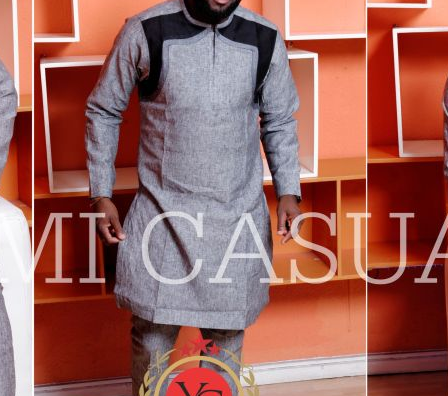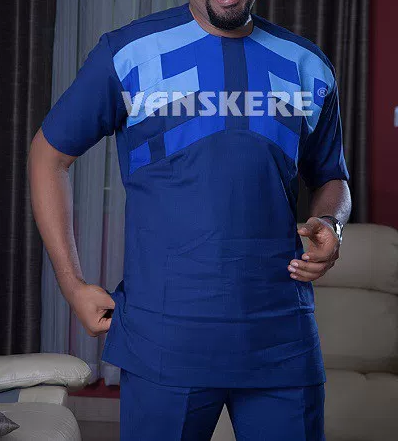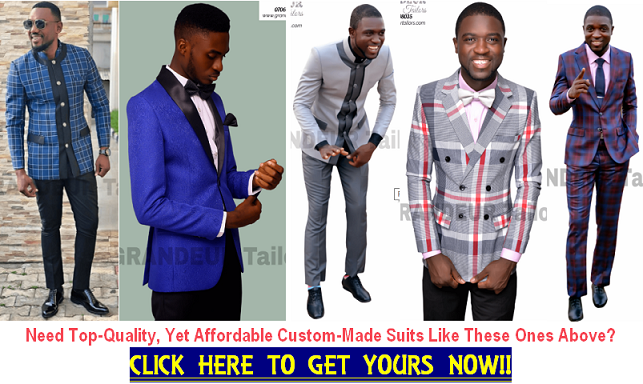Of late, Nigerian men and guys have picked up interest in native fashion, largely preferring native attires to foreign fashion. This new interest applies to formal, semi-formal and completely informal settings.
However, as much as this desire to native attires is rife, there are many Nigerian men who are equally at a loss as to the native styles or dresses they should opt for, when the need arises or when they simply want to go native.
If you’re in that boat, you’re on the right page; it is our promise that you’ll be treated to the finest native dress styles available for the Nigerian guy or man today.
Nigerian Native Dress Styles for Men












Different native styles worn by Nigerian men
Senator Style
The Senator Style is a simple Nigerian native design that is very popular in the Eastern and the Niger Delta parts of the country. Sewn and decorated with stiff, thick and usually quality fabrics, this style is either rendered in short or long sleeves and is loved by both the young and old male population of Nigeria.
However, it is important to note that despite the fact that this native attire is popular in the East and Niger Delta regions, it has been adopted all over Nigeria and can be seen worn just about every nook and cranny of the country.
>>>See our collection of Senator styles for men
Atiku Native Style(s)
Closely resembling the Senator Style, the Atiku Native Styles are a variety of native attires sewn in a simple and smart manner with most styles actually finished in a body fitting manner.
A major distinction of this native fashion style is the fact that native attires for Nigerian men made in this fashion are mostly short sleeved, light on the embroidery and overall, emphasize simplicity above all else in both their make, embroidery and the even in the final act of wearing them on.
>>> See our collection of Atiku styles for men
Agbada
The Agbada is a very popular native attire, especially common in the Western and Northern parts of the country – though, overall, the attire is used all over Nigeria and even beyond.
The Agbada consists of three pieces: the outer, large gown that needs to be constantly balanced on the shoulders, the inner shirt and a pair of trousers – all which may be matching or completely (or partially) ‘mismatched’.
Usually worn with a cap to match, the Agbada traditional attire is made of expensive fabrics and overall, considered to be an attire for the rich, affluent or powerful, worthy of only occasions that befit it, whether they be formal, semi-formal or completely informal.
>>> See our collection of Agbada styles for men
Kaftan
The Kaftan is a long loose native tunic that stretches below the knees and in some cases, reaches the ankles. This dress type (unlike the Agbada mentioned above) fits better and does not require constant adjustments to sit in place on one’s body when worn.
The Kaftan native attire is usually rendered in long sleeve form and usually has a trouser of same material to match.
Immensely popular in Northern Nigeria, the Kaftan has been accepted all over Nigeria and even beyond – with a plethora of style and variations perfected by local fashion designers.
Dashiki
The Dashiki is a smart, native attire loved by both men and guys in Nigeria owning largely to the fact that it is easy on the body, ensures way less restriction and handles heat in a perfect manner.
Sewn with two front pockets (as against side pockets), the Dashiki is designed with a matching pair of trousers and sometimes comes designed with a matching pair of shoes and cap to complete the attire.
The Dashiki is immensely popular in semi-formal and completely informal settings.
>>> See our collection of Dashiki styles for men




No Responses